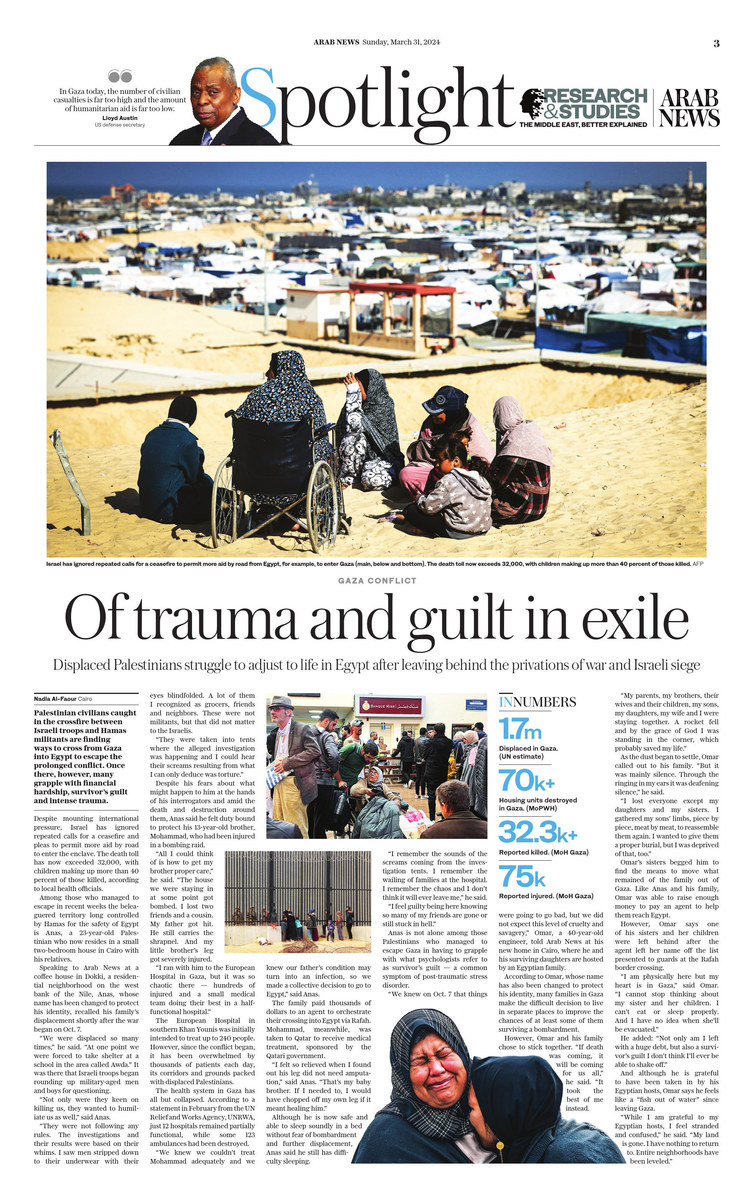CAIRO: Palestinian civilians caught in the crossfire between Israeli troops and Hamas militants are finding ways to cross from Gaza into Egypt to escape the prolonged conflict. Once there, however, many grapple with financial hardship, survivor’s guilt and intense trauma.
Despite mounting international pressure, Israel has ignored repeated calls for a ceasefire and pleas to permit more aid by road to enter the enclave. The death toll has now exceeded 32,000, with children making up more than 40 percent of those killed, according to local health officials.
Among those who managed to escape in recent weeks the beleaguered territory long controlled by Hamas for the safety of Egypt is Anas, a 23-year-old Palestinian who now resides in a small two-bedroom house in Cairo with his relatives.
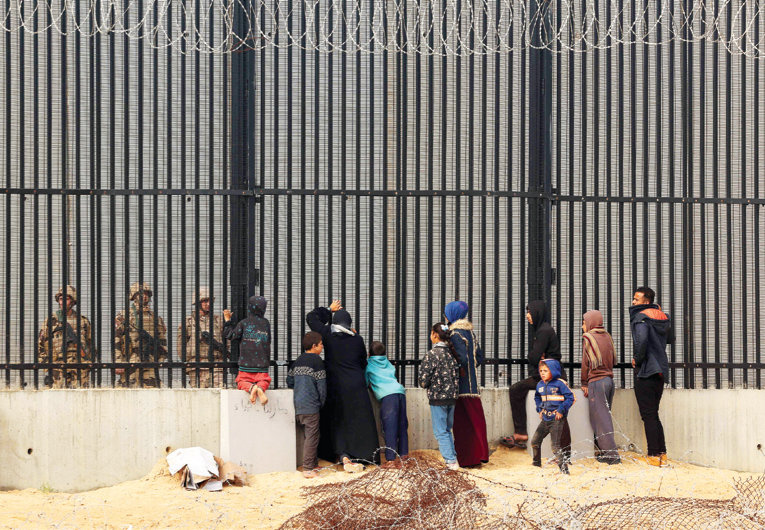
Displaced Palestinians talk to Egyptian soldiers at the border fence between Gaza and Egypt, on February 16, 2024 in Rafah, in the southern Gaza Strip, amid the ongoing conflict between Israel and the Palestinian Hamas militant group. (AFP/File)
Speaking to Arab News at a coffee house in Dokki, a residential neighborhood on the west bank of the Nile, Anas, whose name has been changed to protect his identity, recalled his family’s displacement shortly after the war began on Oct. 7.
“We were displaced so many times,” he said. “At one point we were forced to take shelter at a school in the area called Awda.” It was there that Israeli troops began rounding up military-aged men and boys for questioning.
“Not only were they keen on killing us, they wanted to humiliate us as well,” said Anas.
“They were not following any rules. The investigations and their results were based on their whims. I saw men stripped down to their underwear with their eyes blindfolded. A lot of them I recognized as grocers, friends and neighbors. These were not militants, but that did not matter to the Israelis.
“They were taken into tents where the alleged investigation was happening and I could hear their screams resulting from what I can only deduce was torture.”
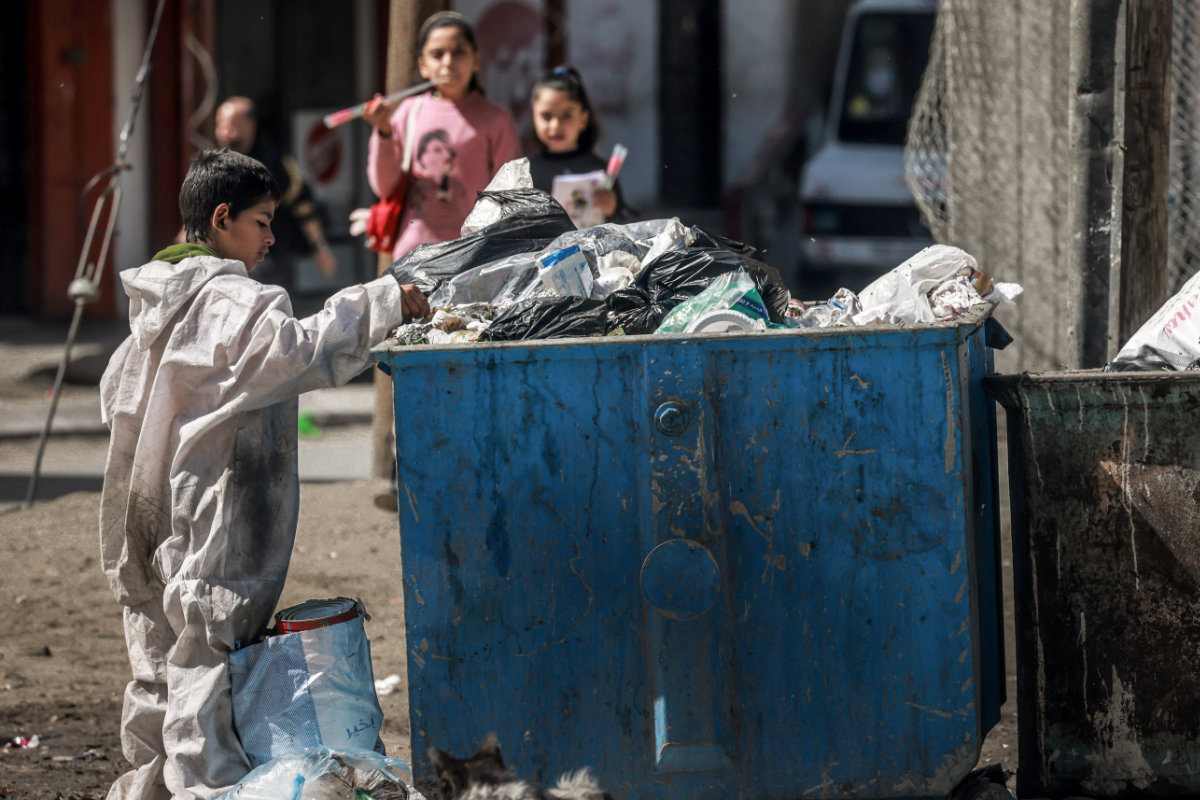
A Palestinian boy looks for cartons to make a fire in the Rafah refugee camp on March 21, 2024, amid ongoing battles between Israel and the militant group Hamas. (AFP)
Despite his fears about what might happen to him at the hands of his interrogators and amid the death and destruction around them, Anas said he felt duty bound to protect his 13-year-old brother, Mohammad, who had been injured in a bombing raid.
“All I could think of is how to get my brother proper care,” he said. “The house we were staying in at some point got bombed. I lost two friends and a cousin. My father got hit. He still carries the shrapnel. And my little brother’s leg got severely injured.
“I ran with him to the European Hospital in Gaza, but it was so chaotic there — hundreds of injured and a small medical team doing their best in a half-functional hospital.”
INNUMBERS
• 1.7 million Displaced in Gaza. (UN estimate)
• 70,000+ Housing units destroyed in Gaza (MoPWH)
• 32,300+ Reported killed. (MoH Gaza)
• 74,690+ Reported injured. (MoH Gaza)
The European Hospital in southern Khan Younis was initially intended to treat up to 240 people. However, since the conflict began, it has been overwhelmed by thousands of patients each day, its corridors and grounds packed with displaced Palestinians.
The health system in Gaza has all but collapsed. According to a statement in February from the UN Relief and Works Agency, UNRWA, just 12 hospitals remained partially functional, while some 123 ambulances had been destroyed.
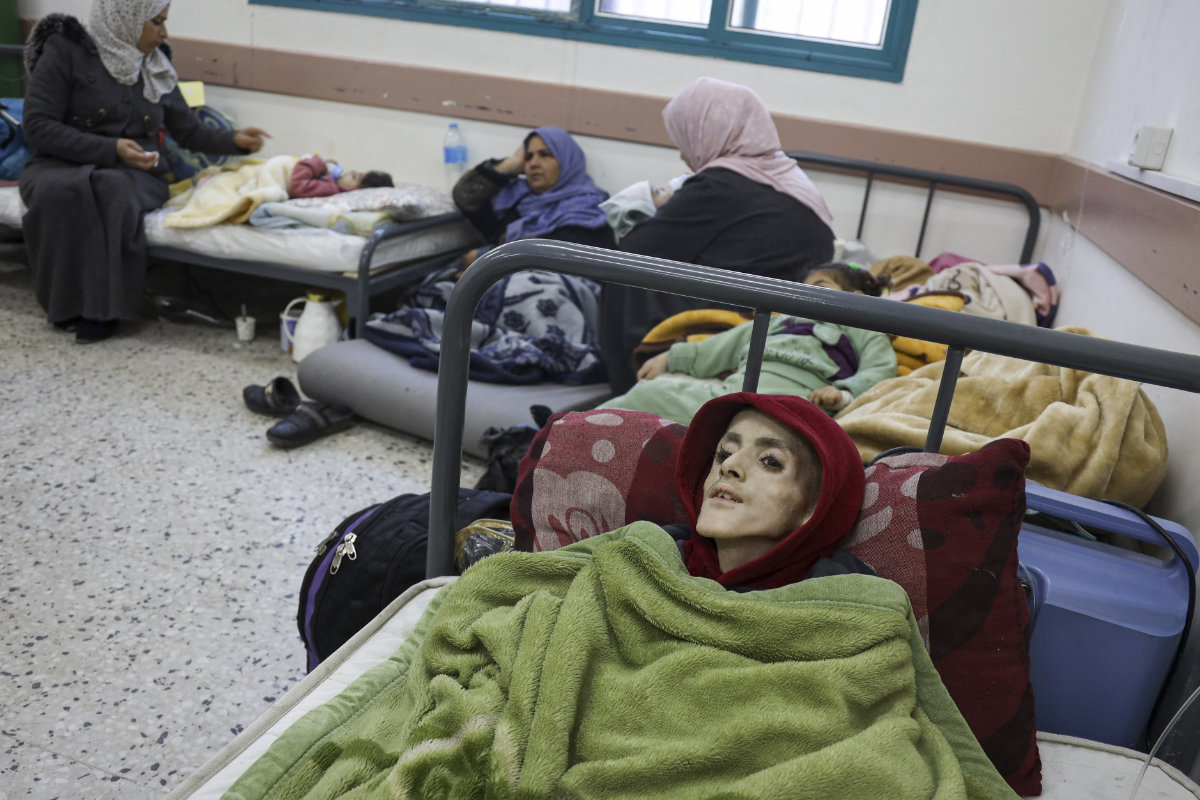
This photo taken on February 29, 2024 shows displaced Palestinian children, including a 10-year-old with a pre-existing condition, at Al-Awda clinic in Rafah in the southern Gaza Strip. The boy died on March 4, 2024 from severe malnourishment and insufficient healthcare with the lack of needed medication and severe malnutrition as living conditions in the besieged Palestinian territory deteriorate. (AFP)
“We knew we couldn’t treat Mohammad adequately and we knew our father’s condition may turn into an infection, so we made a collective decision to go to Egypt,” said Anas.
The family paid thousands of dollars to an agent to orchestrate their crossing into Egypt via Rafah. Mohammad, meanwhile, was taken to Qatar to receive medical treatment, sponsored by the Qatari government.
“I felt so relieved when I found out his leg did not need amputation,” said Anas. “That’s my baby brother. If I needed to, I would have chopped off my own leg if it meant healing him.”
Although he is now safe and able to sleep soundly in a bed without fear of bombardment and further displacement, Anas said he still has difficulty sleeping.
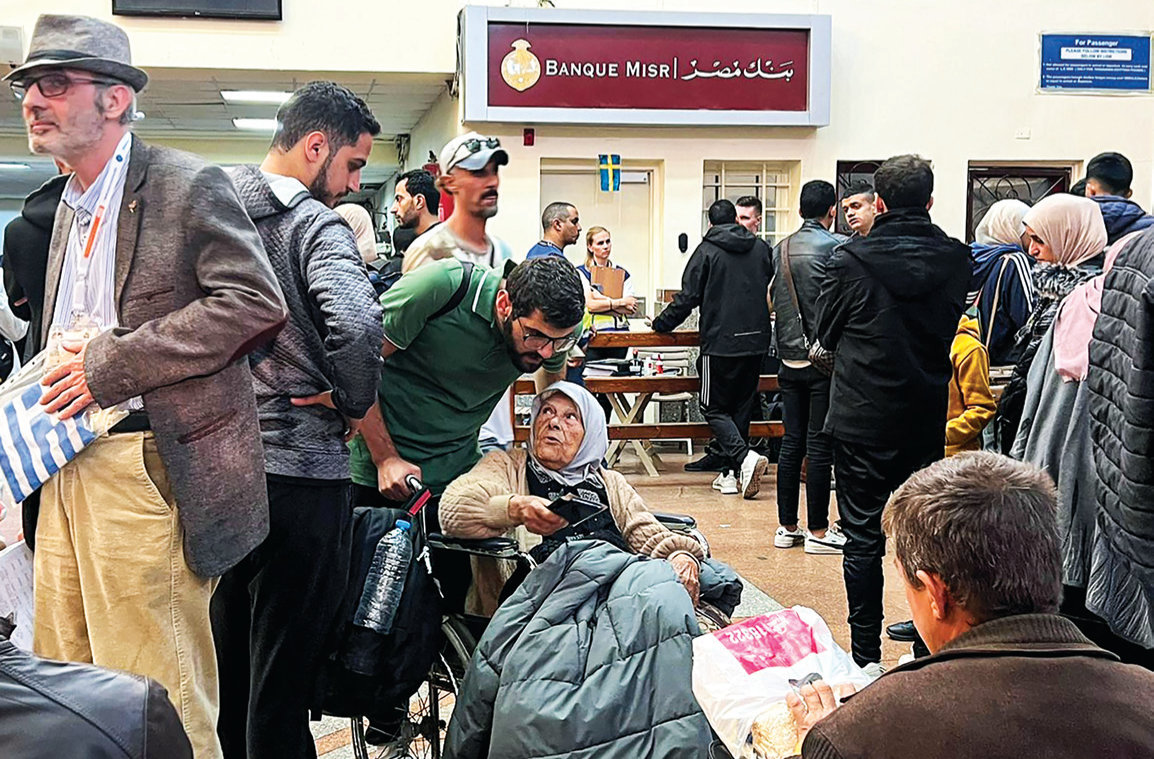
Some Palestinians fleeing Israeli bombardment in Gaza have managed to enter Egypt but at great risk and expense, according to some refugees. (AFP/File)
“I remember the sounds of the screams coming from the investigation tents. I remember the wailing of families at the hospital. I remember the chaos and I don’t think it will ever leave me,” he said.
“I feel guilty being here knowing so many of my friends are gone or still stuck in hell.”
Anas is not alone among those Palestinians who managed to escape Gaza in having to grapple with what psychologists refer to as survivor’s guilt — a common symptom of post-traumatic stress disorder.
“We knew on Oct. 7 that things were going to go bad, but we did not expect this level of cruelty and savagery,” Omar, a 40-year-old engineer, told Arab News at his new home in Cairo, where he and his surviving daughters are hosted by an Egyptian family.
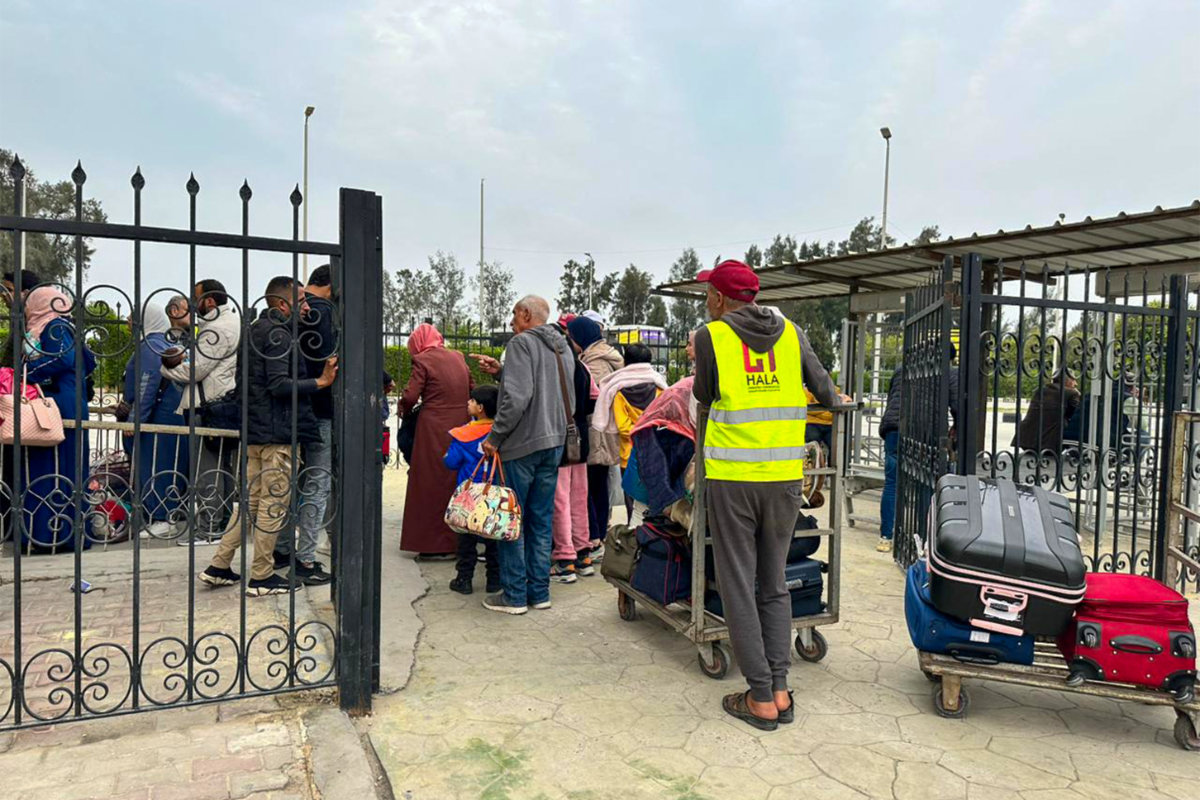
Dual nationality holders are among the few fleeing violence in from Gaza to be allowed to enter Egypt through the Rafah border crossing. (AFP)
According to Omar, whose name has also been changed to protect his identity, many families in Gaza make the difficult decision to live in separate places to improve the chances of at least some of them surviving a bombardment.
However, Omar and his family chose to stick together. “If death was coming, it will be coming for us all,” he said. “It took the best of me instead.
“My parents, my brothers, their wives and their children, my sons, my daughters, my wife and I were staying together. A rocket fell and by the grace of God I was standing in the corner, which probably saved my life.”
As the dust began to settle, Omar called out to his family. “But it was mainly silence. Through the ringing in my ears it was deafening silence,” he said.
“I lost everyone except my daughters and my sisters. I gathered my sons’ limbs, piece by piece, meat by meat, to reassemble them again. I wanted to give them a proper burial, but I was deprived of that, too.”
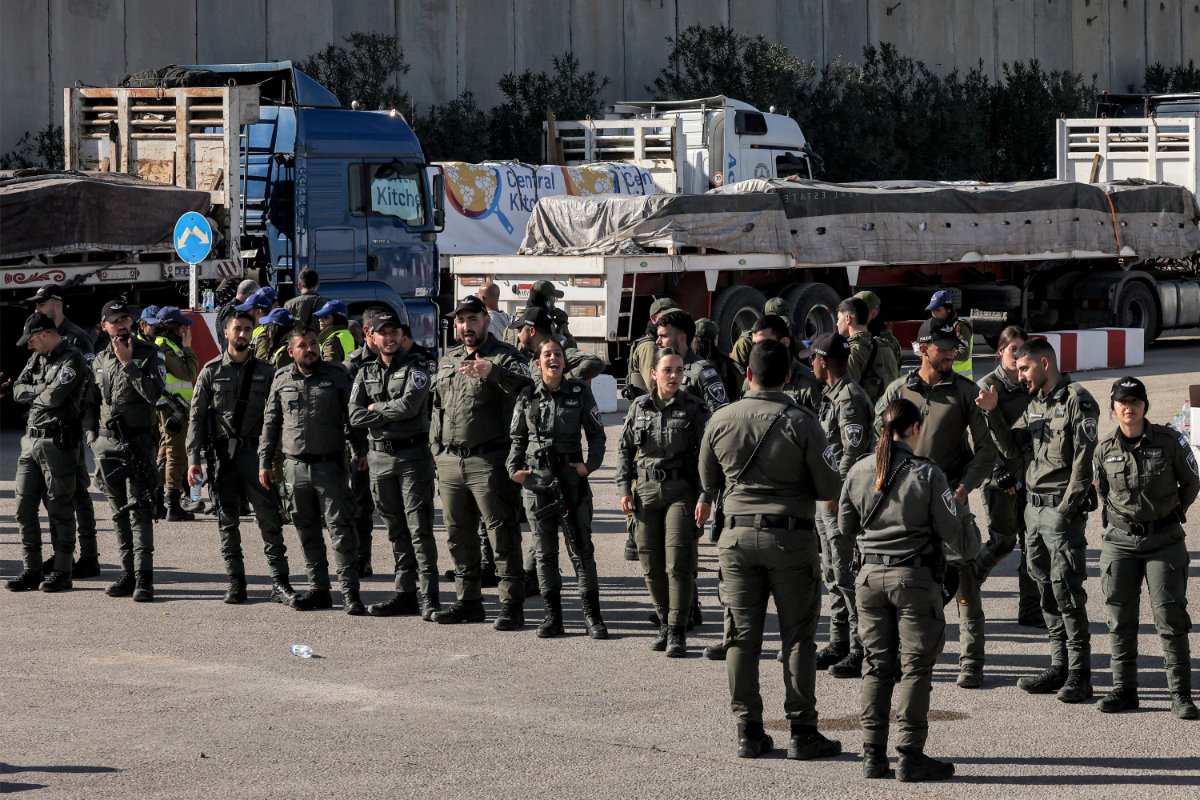
Israeli troops stand guard near Egyptian trucks bringing in humanitarian aid supplies to the Gaza Strip, on the Israeli side of the Kerem Shalom border crossing with the Palestinian territory on February 6, 2024, as right-wing Israeli protesters gather to block the trucks from entering. (AFP)
Omar’s sisters begged him to find the means to move what remained of the family out of Gaza. Like Anas and his family, Omar was able to raise enough money to pay an agent to help them reach Egypt.
However, Omar says one of his sisters and her children were left behind after the agent left her name off the list presented to guards at the Rafah border crossing.
“I am physically here but my heart is in Gaza,” said Omar. “I cannot stop thinking about my sister and her children. I can’t eat or sleep properly. And I have no idea when she’ll be evacuated.”
He added: “Not only am I left with a huge debt, but also a survivor’s guilt I don’t think I’ll ever be able to shake off.”
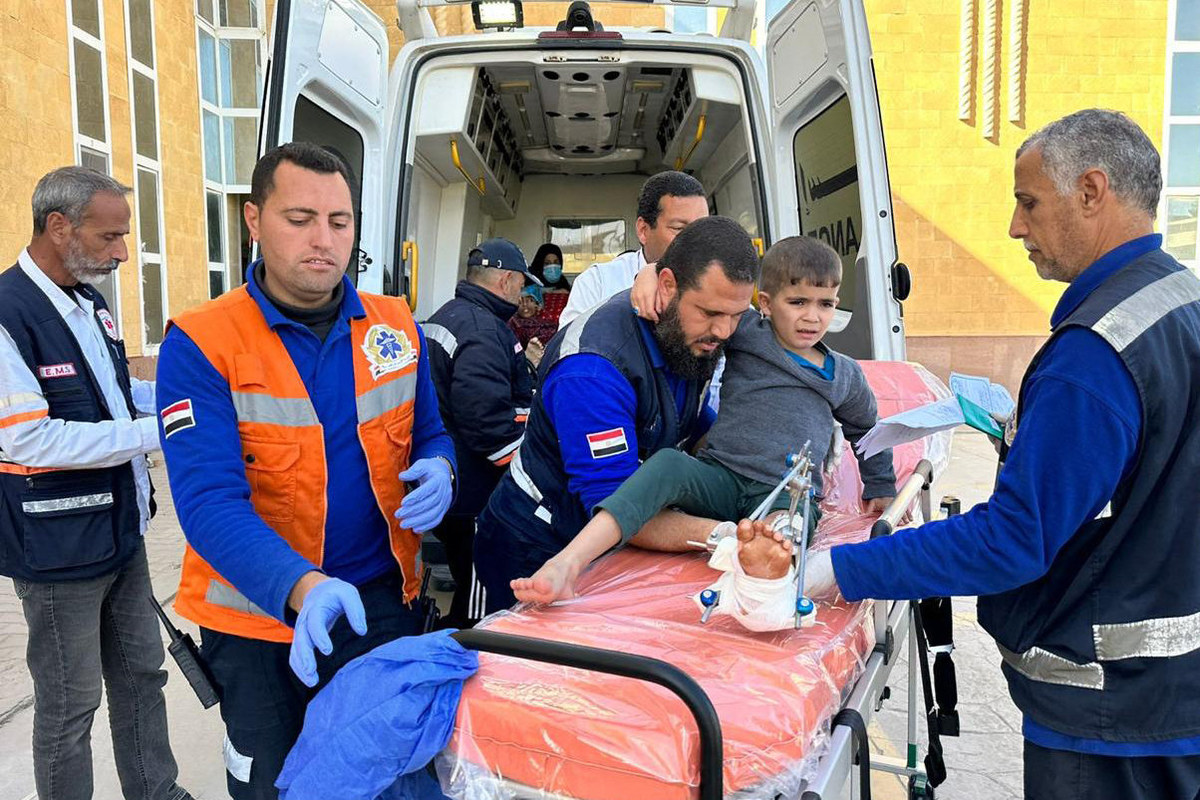
Egyptian paramedics transport an injured Palestinian child to a Red Crescent ambulance upon his arrival from Gaza via the Rafah border crossing, on January 10, 2024 amid the ongoing conflict between Israel and the militant group Hamas. (AFP)
And although he is grateful to have been taken in by his Egyptian hosts, Omar says he feels like a “fish out of water” since leaving Gaza.
“While I am grateful to my Egyptian hosts, I feel stranded and confused,” he said. “My land is gone. I have nothing to return to. Entire neighborhoods have been leveled.
“I am haunted by my previous life, the sound of my wife’s laughter, my sons’ gleeful screams as they played. I feel soulless now. But I have to remain stoic for my daughters and my sisters. I am the only man left from the family. Their husbands have been arrested and we don’t know whether they are dead or alive.
“But after so much suffering, grace must come. God’s justice will not have it any other way.”
